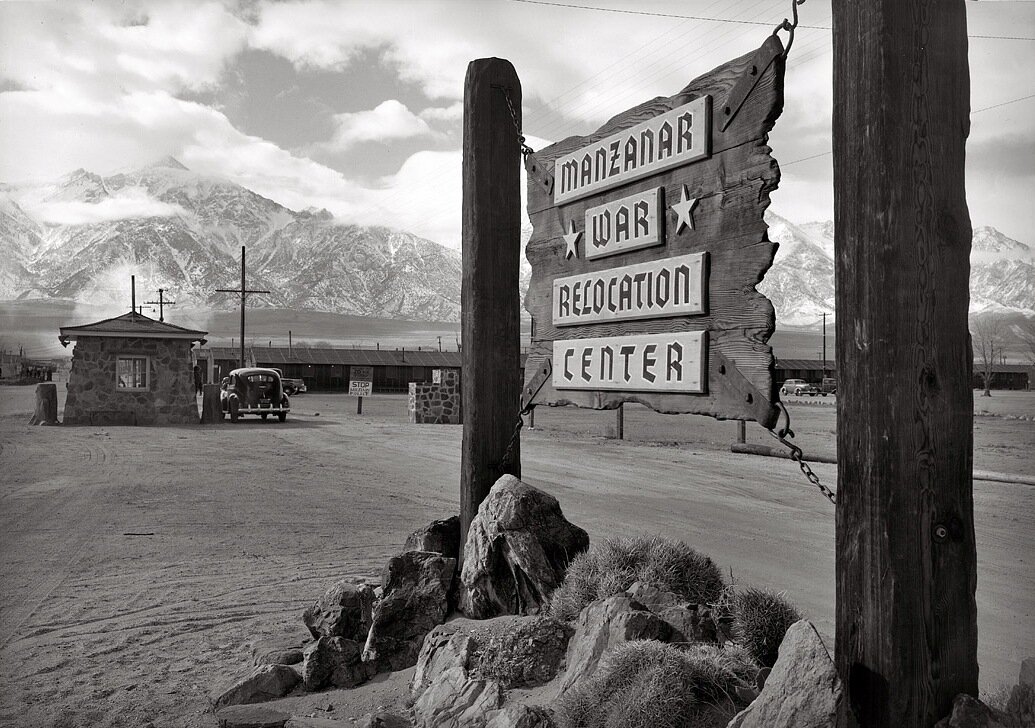The California legislature passed a resolution formally apologizing for the state’s role in imprisoning Japanese Americans during World War II, solely on the basis of ancestry. Under order of President Franklin D. Roosevelt in February 1942, the U.S. government forced more than 120,000 people of Japanese descent into ten camps across the Western states. California was home to two of these camps: Manzanar in central California, and Tule Lake Relocation Center in the north. (The Guardian)
In HR-77 and SR-72, the Assembly and the Senate respectively expressed contrition for their predecessors’ actions, including state legislation from 1941 “questioning the loyalty of Japanese Americans and those holding dual citizenship,” as well as trying to fire Japanese Americans who worked for the state government. The bills were introduced by Assemblyman Al Muratsuchi and Senator Richard Pan in their respective chambers, joined by numerous co-sponsors. The resolution “apologizes to all Americans of Japanese ancestry for its past actions in support of the unjust exclusion, removal, and incarceration of Japanese Americans during World War II, and for its failure to support and defend the civil rights and civil liberties of Japanese Americans during this period.”
Also this year, California Governor Gavin Newsom declared Feb. 19—the day of Roosevelt’s executive order—a Day of Remembrance. The federal Civil Liberties Act of 1988, signed into law by President Ronald Reagan, declared that the executive order (EO9066) was not justified by military necessity, was caused by “racial prejudice, wartime hysteria, and a failure of political leadership,” and granted compensation to those unjustly interned.
Source: Manzanar National Historic Site. Photograph by Clem Albers, “Registering for Work”
Source: Wikimedia. Photograph by Ansel Adams, “Entrance to Manzanar”
Commemorating Japanese Internment with a New National Park?
In a related story, the Granada Relocation Center in Colorado (commonly known as Amache or Camp Amache) was another of the ten internment camps. At its peak, according to NBC News, “Amache held more than 7,300 internees, who were confined within a single square mile by barbed wire and armed guards.” In the decades since, the site fell into disrepair and many of the buildings collapsed. However, “structures are again starting to dot the landscape at Amache, which had been reduced to dirt, weeds and crumbling building foundations after the war.“ The historic site “is being pieced back together, bit by bit, by a high school teacher and his students who want to make sure this dark period of American history is not forgotten.” The students have been “interviewing former internees, gathering and cataloging artifacts, maintaining the grounds, giving presentations and curating a small museum.”
That work is resonating with many others, including the federal government, which will consider making the site a new national park. The National Park Service is conducting an evaluation to help Congress make that determination. The NPS criteria to “determine eligibility for establishment of a potential unit of the national park system include: national significance, suitability and feasibility of inclusion within the system, and the need for NPS management.”
If SAPAAC members are interested in giving public comment to the National Park Service, public meetings are scheduled in several places in California including Sebastopol, Sacramento, Merced and Oakland (March 16-19), as well as Arvada, Colorado (April 9). A public consultation was already held in Granada, Colorado on February 11.
Source: U.S. National Archives and Records Administration. Granada Relocation Center, Amache, Colorado. By Tom Parker. NARA record: 4682167. Image in the public domain.
California Legislature’s Apology
California formally apologizes to Japanese Americans for internment camps
https://www.theguardian.com/us-news/2020/feb/20/california-japanese-internment-camps-apology
California apologizes for Japanese American internment
https://apnews.com/4b9234383de4814974f81e78a1edaa95
Asian Caucus members: California's apology for Japanese American incarceration is 'long overdue but important'
https://www.nbcnews.com/news/asian-america/asian-caucus-members-california-s-apology-japanese-american-inca
California Plans to Apologize to Japanese-Americans Over Internment
https://www.nytimes.com/2020/02/18/us/japanese-internment-camps-apology.html
Senate Resolution 72 (SR-72) Text http://leginfo.legislature.ca.gov/faces/billStatusClient.xhtml?bill_id=201920200SR72
House Resolution 77 (HR-77) Text http://leginfo.legislature.ca.gov/faces/billTextClient.xhtml?bill_id=201920200HR77
Amache as a National Park
National Park Service assessment program
https://parkplanning.nps.gov/projectHome.cfm?projectId=92521
Historical background about the Amache site and current interpretative resources
www.amache.org
Info about public meetings regarding turning Amache into a National Park
https://parkplanning.nps.gov/meetingNotices.cfm?projectID=92521



